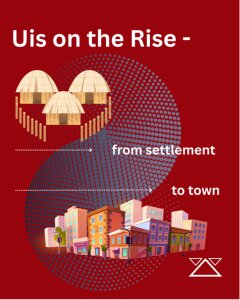Best Communications & Media Law Lawyers in Namibia
Share your needs with us, get contacted by law firms.
Free. Takes 2 min.
Or refine your search by selecting a city:
List of the best lawyers in Namibia
About Communications & Media Law in Namibia:
Communications & Media Law in Namibia governs the legal aspects surrounding the communication and media industries in the country. This includes regulations related to freedom of speech, media content, broadcasting, advertising, telecommunications, and intellectual property rights. The aim of these laws is to balance the rights of individuals to express themselves with the need to protect public interest and prevent harm.
Why You May Need a Lawyer:
You may need a lawyer specializing in Communications & Media Law in Namibia if you are facing issues such as defamation, intellectual property disputes, censorship, media content regulation, privacy violations, or contract disputes in the communication and media industries. A lawyer can help you understand your rights, navigate complex legal processes, and advocate on your behalf to achieve a favorable outcome.
Local Laws Overview:
Key aspects of Communications & Media Law in Namibia include the Namibian Constitution, which guarantees freedom of speech and press freedom; the Communications Act, which regulates broadcasting, telecommunications, and postal services; the Copyright and Neighboring Rights Protection Act, which protects intellectual property rights; and the Access to Information Act, which promotes transparency and access to government information.
Frequently Asked Questions:
1. What is freedom of expression in Namibia?
Freedom of expression is a constitutional right in Namibia, protected under Article 21 of the Constitution. It allows individuals to freely express their opinions and ideas without interference from the government or other entities.
2. Can I be sued for defamation in Namibia?
Defamation laws exist in Namibia, and individuals can be sued for publishing false and damaging statements that harm someone's reputation. It is important to be mindful of what you say or write about others to avoid defamation claims.
3. What are the regulations for advertising in Namibia?
Advertising in Namibia is regulated by laws such as the Advertising Standards Authority Code of Ethics and the Namibian Code of Advertising Practice. These regulations aim to ensure that advertisements are truthful, honest, and respect consumer rights.
4. How are intellectual property rights protected in Namibia?
Intellectual property rights in Namibia are protected under the Copyright and Neighboring Rights Protection Act, which safeguards the rights of creators and innovators in areas such as music, literature, art, and technology.
5. Can the government restrict access to information in Namibia?
The government can restrict access to information in certain circumstances, such as national security concerns or the protection of personal privacy. However, the Access to Information Act promotes transparency and accountability, allowing citizens to request access to government information.
6. What are the rules for broadcasting content in Namibia?
Broadcasting content in Namibia is regulated by the Communications Act, which sets out standards for programming, advertising, and licensing requirements for broadcasters. The Act aims to ensure that broadcast content is socially responsible and culturally sensitive.
7. Can journalists protect their sources in Namibia?
Journalists in Namibia have the right to protect their sources under the Journalistic Code of Ethics and the Press Freedom Code. Confidentiality of sources is essential for investigative journalism and ensuring the free flow of information.
8. How can I file a complaint about media content in Namibia?
If you have concerns about media content in Namibia, you can file a complaint with the Media Ombudsman or the Namibian Media Council. These bodies investigate complaints of unethical journalism practices and can take remedial action if necessary.
9. Are there restrictions on social media use in Namibia?
Social media use in Namibia is subject to the same legal standards as other forms of communication. Individuals must adhere to laws regarding defamation, hate speech, privacy, and intellectual property rights when using social media platforms.
10. How can I protect my artistic creations in Namibia?
To protect your artistic creations in Namibia, you can register your works under the Copyright and Neighboring Rights Protection Act. By securing copyright protection, you can prevent others from using your creations without permission and seek legal remedies in case of infringement.
Additional Resources:
For further information on Communications & Media Law in Namibia, you can contact the Namibian Communications Commission, the Media Institute of Southern Africa Namibia Chapter, or seek legal advice from a reputable law firm specializing in this field.
Next Steps:
If you require legal assistance in Communications & Media Law in Namibia, it is advisable to consult with a qualified lawyer who has expertise in this area. They can provide you with personalized advice, represent your interests in legal matters, and help you navigate the complex legal landscape of the communication and media industries in Namibia.
Lawzana helps you find the best lawyers and law firms in Namibia through a curated and pre-screened list of qualified legal professionals. Our platform offers rankings and detailed profiles of attorneys and law firms, allowing you to compare based on practice areas, including Communications & Media Law, experience, and client feedback.
Each profile includes a description of the firm's areas of practice, client reviews, team members and partners, year of establishment, spoken languages, office locations, contact information, social media presence, and any published articles or resources. Most firms on our platform speak English and are experienced in both local and international legal matters.
Get a quote from top-rated law firms in Namibia — quickly, securely, and without unnecessary hassle.
Disclaimer:
The information provided on this page is for general informational purposes only and does not constitute legal advice. While we strive to ensure the accuracy and relevance of the content, legal information may change over time, and interpretations of the law can vary. You should always consult with a qualified legal professional for advice specific to your situation.
We disclaim all liability for actions taken or not taken based on the content of this page. If you believe any information is incorrect or outdated, please contact us, and we will review and update it where appropriate.
Browse communications & media law law firms by city in Namibia
Refine your search by selecting a city.















